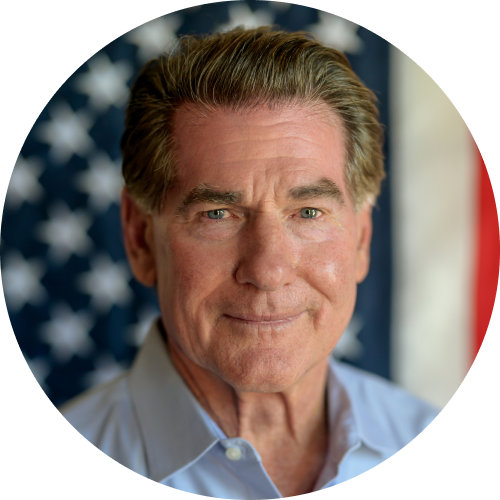U.S. Senator
Full Term
Top candidate wins seat.
99% of votes countedAssociated PressThis percentage is an Associated Press estimate of how much of the vote in an election has been counted. It is informed by turnout in recent elections, details on votes cast in advance and – after polls close – early returns. The estimate may fluctuate as election officials report additional results and AP learns more about how many voters have cast a ballot.
Partial Term
Top candidate wins seat.
99% of votes countedAssociated PressThis percentage is an Associated Press estimate of how much of the vote in an election has been counted. It is informed by turnout in recent elections, details on votes cast in advance and – after polls close – early returns. The estimate may fluctuate as election officials report additional results and AP learns more about how many voters have cast a ballot.
Results are provided by the Associated Press (AP). The AP calls winners by analyzing vote tallies and other election data. Check marks are used to denote a winner only when the AP calls a race.
Why am I seeing two results for this race?
When longtime California Sen. Dianne Feinstein died in September 2023, Gov. Gavin Newsom appointed Laphonza Butler to serve the remainder of her term. Voters are now being asked to pick a senator to serve the short window from when the election is certified to when the term ends on Jan. 3, 2025, and also to pick a senator for the next full term, from January 2025 through January 2031.
Why does this race matter?
California Senator Laphonza Butler, who was appointed to this seat following the death of Dianne Feinstein, announced in October 2023 that she would not run for a full term. Now, Steve Garvey and Adam Schiff compete for the opportunity to represent the most populous state in the nation in the Senate.
Candidates


Top Priorities
Steve Garvey:
- Tackling homelessness by addressing the mental health and substance abuse crises.
- Improving public schools.
- Holding criminals accountable and improving funding for police departments.
Adam Schiff:
- Expanding voting rights and eliminating the electoral college.
- Reforming campaign finance and ethics laws to make government more accountable.
- Reforming the U.S. Supreme Court by expanding it and imposing term limits.
Key Supporters
For Garvey
- California Republican Party
For Schiff
- Nancy Pelosi, U.S. representative
- California Labor Federation
- United Farm Workers
FundraisingCampaign finance data comes from the California Secretary of State’s office or the Federal Election Commission.
Source: California Secretary of State
Positions on Key IssuesCandidate summaries are based on interviews with the candidates, questionnaires, statements made at debates and public events, and past news coverage.
Do you support a national abortion ban, national abortion limit or federal legislation codifying abortion access across the U.S.?
Do you want to see any conditions placed on U.S. aid to Israel? Do you support continuing financial and military aid to Ukraine?
Would you use Community Project Funding requests (also known as earmarks) to steer funds toward California projects?
Would you support changes to the asylum system or other immigration reform? Did you support the bipartisan border bill drafted by President Biden and Senate Republicans that would have added border security and also limited the asylum system?
U.S. Senator FAQ
What are the qualifications to be a senator?
Senators must be at least 30 years old, and have been U.S. citizens for at least nine years. They must also be residents of the state they’re running to represent at the time of the election.
How many years do we elect a U.S. senator for?
U.S. senators are elected for six-year terms.
To learn more about how we use your information, please read our privacy policy.
Signed up.
More Results
See results for all statewide propositions and candidate races.